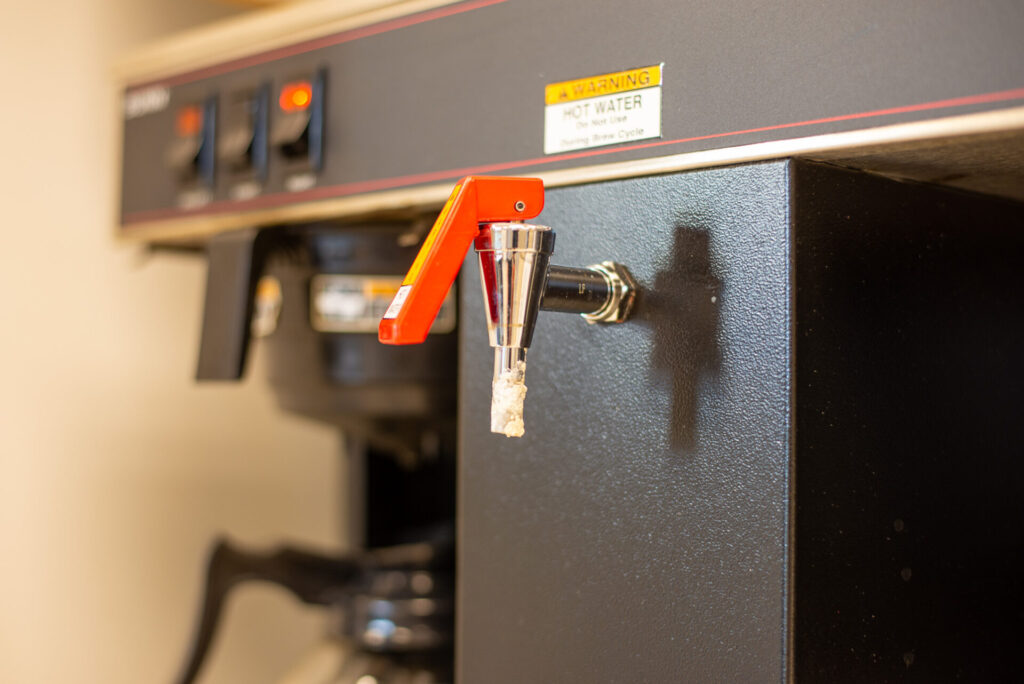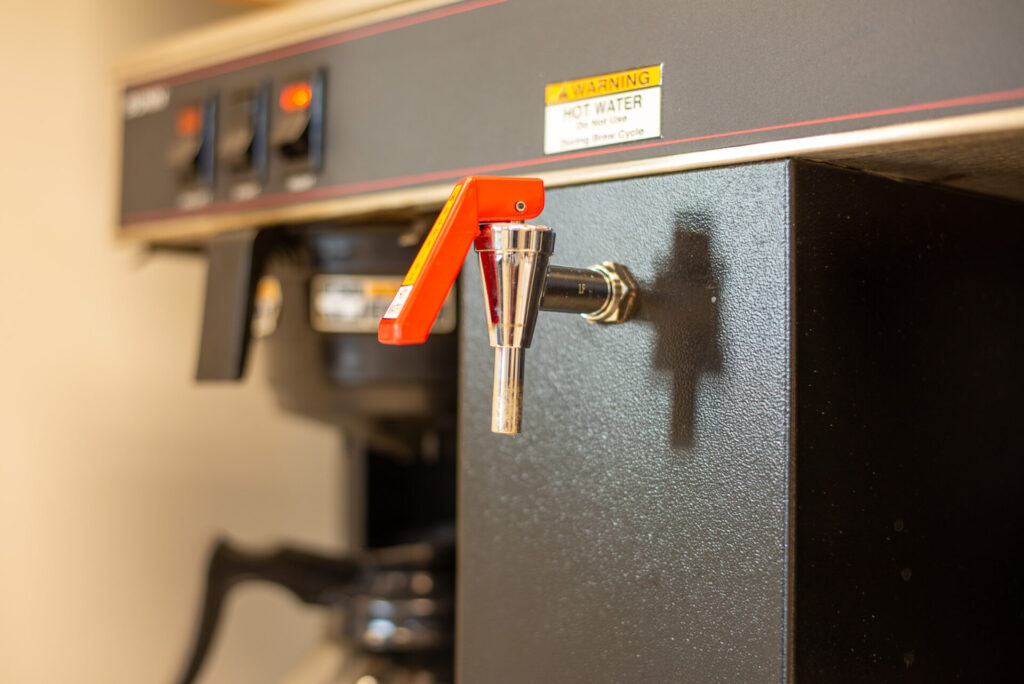Descaling a coffee maker with RYDLYME
Water scale buildup is inevitable when heat transfer is involved, and this is no different in a coffee/espresso machine. As water scale and mineral deposits buildup within the coffee makers’ heat exchanger, the effort from your machine to heat the water will increase significantly leading to premature wear and early failures. Descaling a coffee maker with RYDLYME is fast and easy!

Luckily, descaling a coffee machine is easy with RYDLYME biodegradable descaler. This revolutionary descaler is ANSI 60/NSF certified for potable water systems. Once you complete a RYDLYME cleaning on your machine, make sure you flush your system with fresh water before brewing your next batch.
How to descale a coffee machine with RYDLYME?
Every brand manufacturer will be slightly different, but if you follow these easy steps your coffee maker will be brewing hot bean water in no time.
- Drain existing water in system.
- Add a 20% solution of RYDLYME and water to water tank of coffee maker.
- Brew a pot of coffee as you regularly would. (DO NOT ADD COFFEE GROUNDS).
- Once the brewing cycle has completed and all of the RYDLYME/water solution has been circulated through your machine, dump out RYDLYME/water brew. (DO NOT DRINK).
- Fill your water tank once more with fresh water.
- Run another pot of only fresh water through your system.
- Once the brewing cycle has been completed, dump the water out.
- Repeat steps 3-7 two more times.
- Return to service and enjoy that warm beverage!
How often does a descaling cycle need to be performed with RYDLYME?
As previously stated, every coffee maker/brand is different, but here are a few key factors to look for:
- Longer brewing times
- Brew is not as hot as it once was
- Flavor is less than desirable
- Visible scale on brew port
- If you are unsure, a good rule to follow is descale once per year



